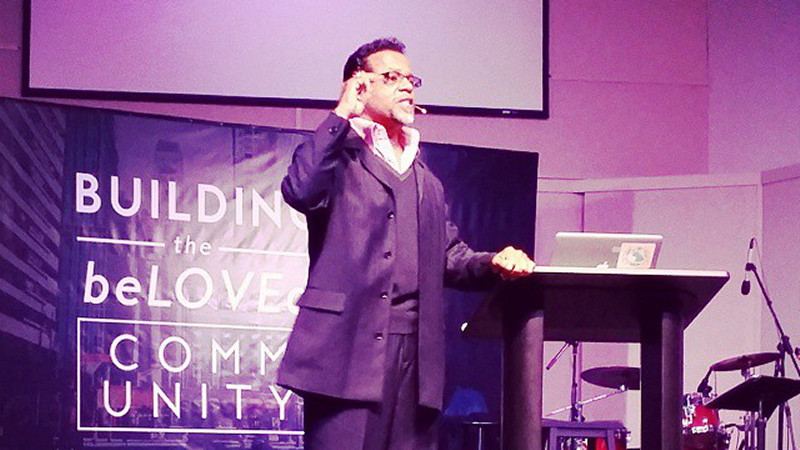Reverend David Alexander continued our third theme, “The Grateful Heart,” in our Building the beLOVEd Community series with his message on Sunday, November 16th.
What is courage? We often see movies and literature portray courageous people as embodying fearlessness; they jump into burning buildings, run toward fights they can’t possibly win, and generally save the day with their heroics. And while it’s pretty cool to watch your favorite action hero be chased by an explosion down a crumbling hallway, these actions don’t really reflect authentic courage.
Courage is not the absence of fear, but rather the innate ability to act despite fear. It is both a deep awareness of inner fear and a stalwart commitment to understand and move beyond that fear. Courage is being able to look at our inner demons and see the core wounds behind those fears. Courage is the ability to set ourselves free despite every barrier our fears build to block our way. We all have this courage within us, because God is courage, and we are always unified with God.
Courage is not the absence of fear, but rather the innate ability to act despite fear.

President Lyndon B. Johnson meets with Martin Luther King, Jr. at the signing of the Voting Rights Act of 1965.
Bodhi cannot help Chicago build Dr. King’s ideal of the Beloved Community if we cannot help ourselves uncover, understand and confront our own fears around building a better community. Read More
Along the California northern coast, there is a large community of trees that stretch hundreds of feet into the air—some over 350 feet—called California or coast redwoods (Sequoia sempervirens). Some are over 2000 years old, making them literally older than Jesus. They have been around, seen some stuff, survived.

Image courtesy of Kristi via flickr
Though their height and longevity are truly amazing, the most interesting fact about these redwood trees is their roots—they are very shallow, sometimes only 5 or 6 feet down into the earth. It would seem that these trees would not be able to remain standing with such shallow roots. Read More


